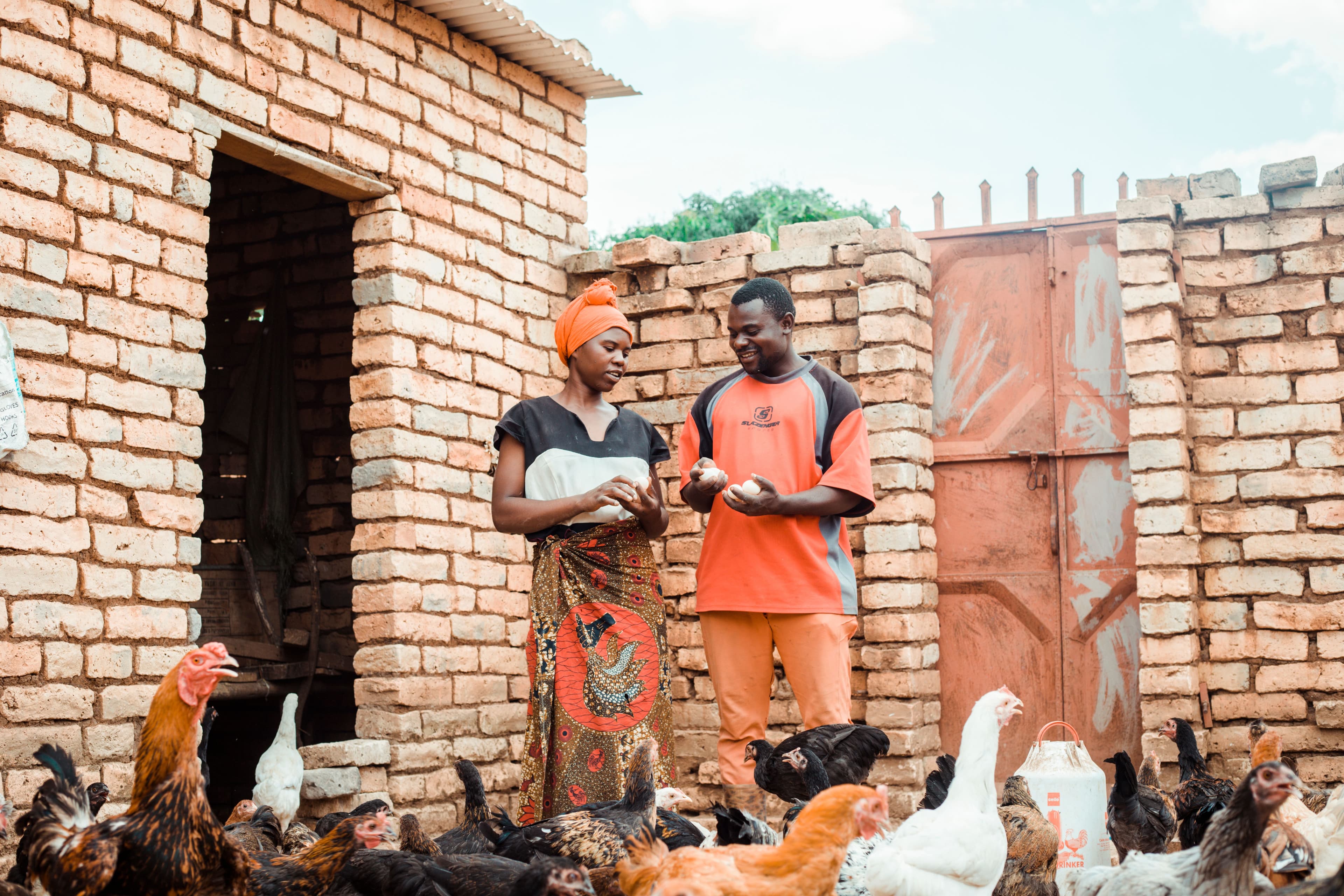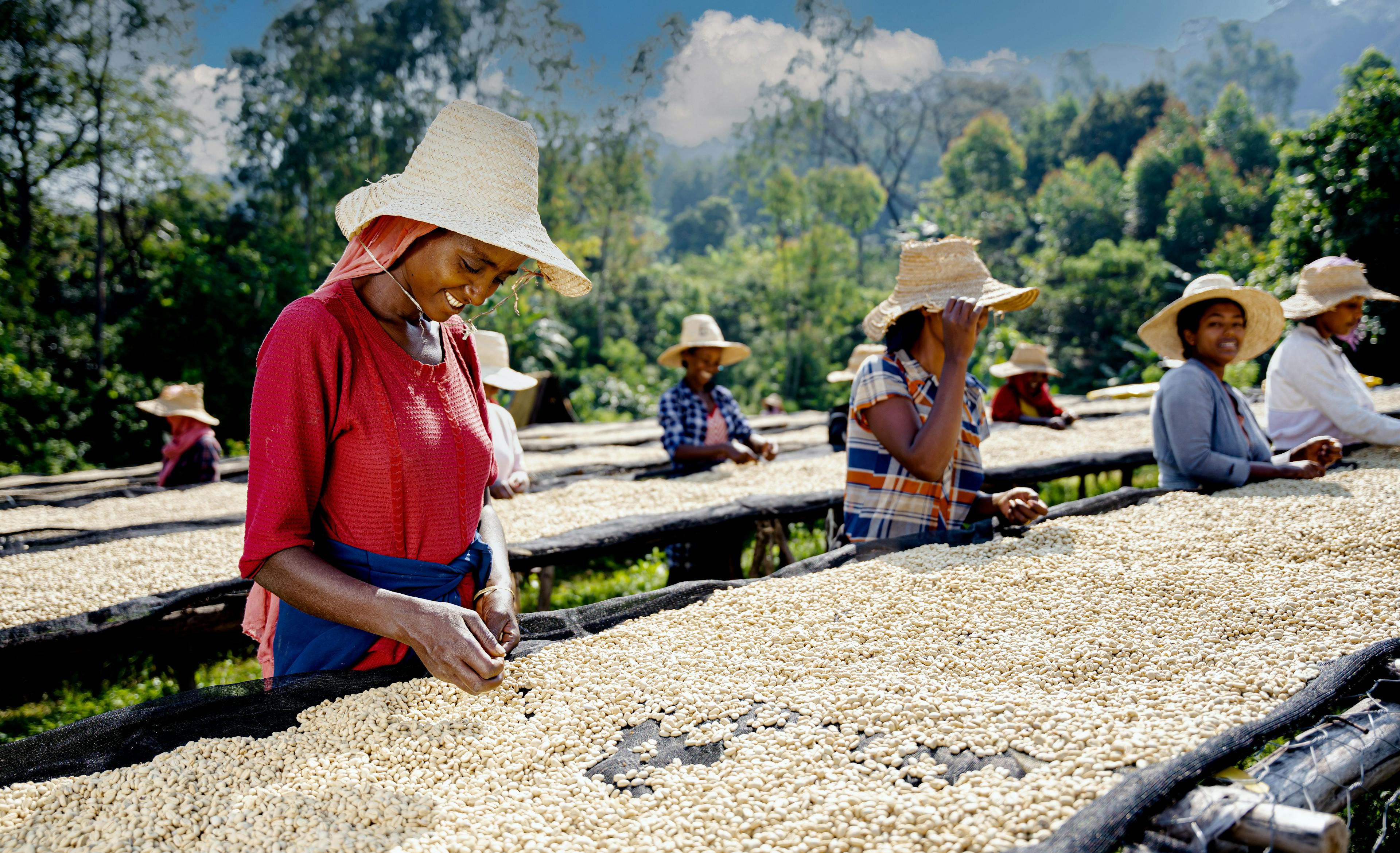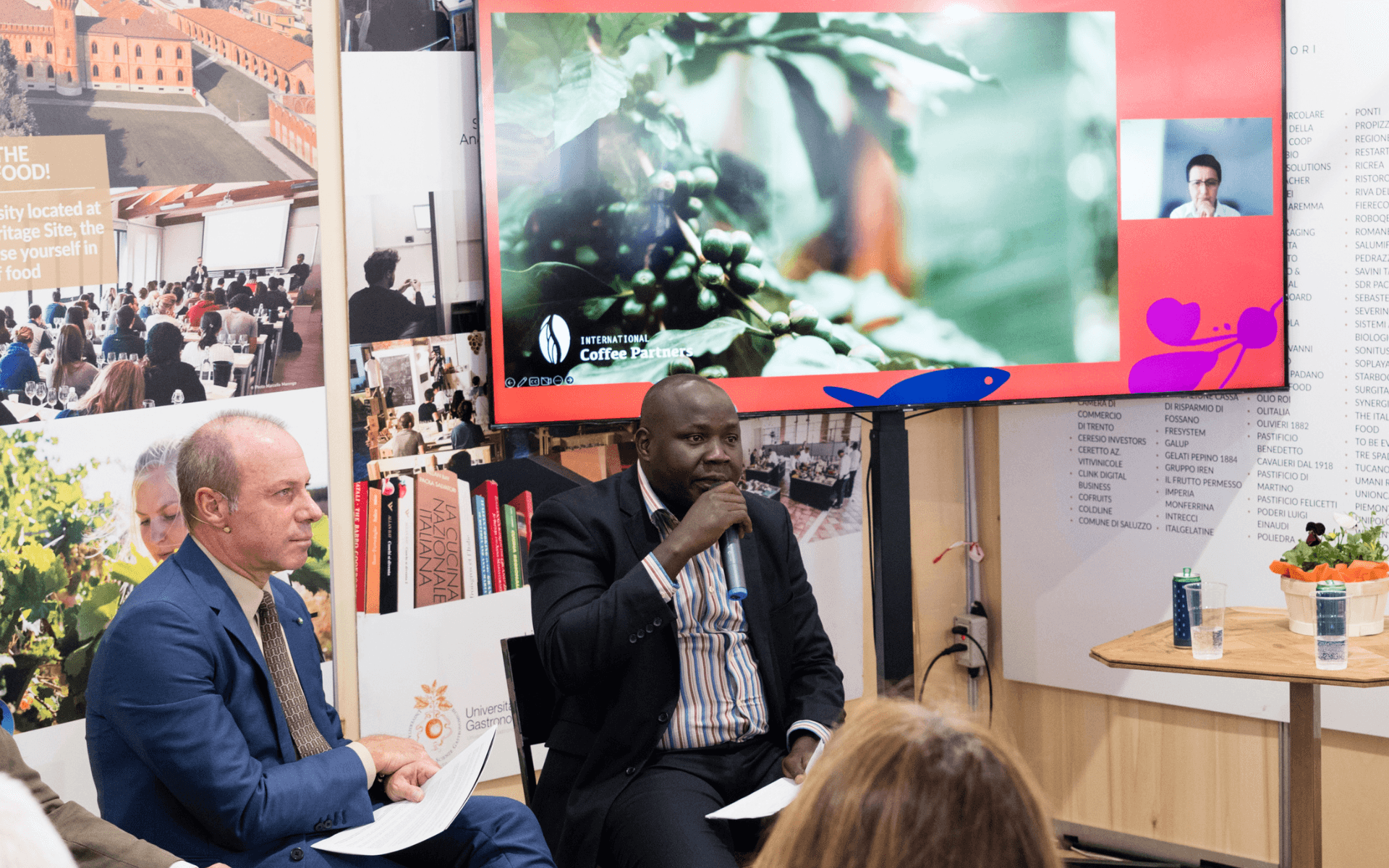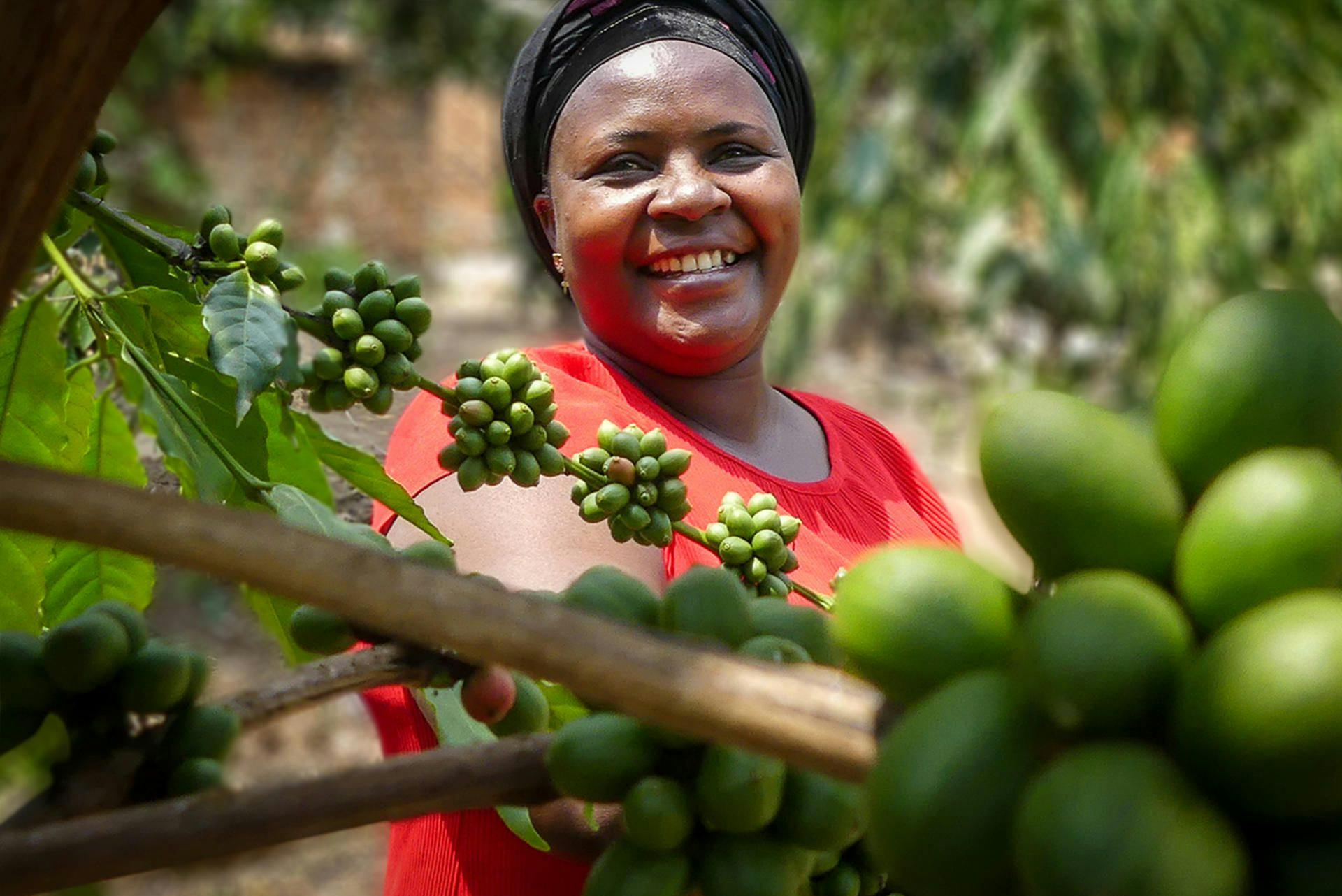
It Takes a Village to Make a Cup of Coffee
If you have ever enjoyed a morning cup of coffee from Tanzania, you probably have a village to thank for helping you start your day on a good note. ICP strengthens coffee farmer organizations here to operate as professional enterprises and improve their services to their members.
After oil, coffee is the second most highly traded good in the world. This means, your coffee travels many miles before it reaches your cup. Its journey begins in the hands of passionate farmers. They play a vital role in the coffee value chain and the economies of coffee-producing countries. This is particularly true for Tanzania where smallholder farmers produce 90 % of the nation’s coffee.
However, there are many challenges that Tanzanian small-scale farmers face. These include poor access to knowledge and training on improved farm practices and how to adapt to the effects of climate change. Farmers also struggle when it comes to improving the quality and quantity of their yields and adding value to their coffee. They find it difficult to access genuine agricultural inputs and are at the mercy of volatile market prices and middlemen. Many of them make their living from growing and selling coffee as their main cash crop. Thus, these challenges can prevent them from being able to improve their living conditions and educate their children to give them a better future.
Stronger through farmer organizations
To overcome these issues, coffee farmers from the same village join forces and form licensed/registered farmer organizations or cooperatives to sell their coffee in bulk. In Tanzania, cooperatives are called ‘AMCOS’ which stands for Agricultural Marketing Cooperative Society. Through an AMCOS, farmers can receive more beneficial prices and terms because, with larger volumes of coffee, they can directly access export markets instead of going through middlemen. AMCOS’ also offer their members several services, including access to agricultural inputs, training on improved farm management practices, savings and loan schemes, and the ability to add value to their coffee – to achieve an even higher payoff for their hard work.
Like all large farmer organizations, what makes an AMCOS run smoothly is strong management and a good governance structure. The size of an AMCOS depends on the number of coffee farmers in the area/village where it is located. This means AMCOS’ can be quite large, with hundreds of members. To make it easier to deliver services to that many people, each AMCOS is broken down into smaller groups of about 30 farmers called Producer Organizations (POs). The POs elect their own leadership and every month PO leaders meet with about 8 AMCOS board members to discuss the progress of the PO’s activities which include training, distribution of inputs, saving and loan schemes, and other services.
One of the objectives of International Coffee Partners (ICP) in Tanzania is to strengthen both AMCOS’ and the POs through their leadership. The ICP project’s implementing partner, Hanns R. Neumann Stiftung (HRNS) takes AMCOS board members through training modules on cooperative governance. Key topics include the cooperative structure and election of leaders which happens every three years, management principles, and policy development. AMCOS leaders are also linked to genuine input suppliers and trained on how to directly export their coffee. Additionally, ICP supports AMCOS leaders to invest in value addition facilities that their POs can use.
At the PO level, ICP supports the establishment of Village Savings and Loan Associations (VSLAs) and provides farmers with training on good agricultural practices, organizational development, business principles, and gender/youth interventions to boost participation of women and young people in farmer organizations. Gender-balanced leadership is strongly encouraged to empower women and attract more female members – after all, women do the majority of agricultural labor.
A thriving farmer organization: Konkwe B PO
In Mbeya, Southern Tanzania, one PO stands out for its impeccable, gender-balanced leadership – Konkwe B PO. The PO has about 45 members and is one of 8 POs under Nsenga AMCOS (about 200 members.) Konkwe B PO was established in 2018 but ICP began strengthening the farmer organization in September 2021. In just eight months, the PO has transformed and is thriving. Over 50% of the newly nominated and elected leaders are female. This is unusual as the ideas about gender roles in the predominately patriarchal culture don’t favor female leadership. However, following the increased awareness of gender equality after sensitization training provided by the ICP project, this notion has evidently changed.
Some of the leaders of Konkwe B PO
Some of the leaders of Konkwe B PO

"Our female leaders have all the qualities we need. They are trustworthy role models in the community and good coffee farmers that contribute tons of coffee. When we started the PO in 2018 there were only 10 members, but our Chairwoman has increased the members to 45, many of them are female members. We are now one of the largest and most successful POs in Nsenga AMCOS."
Mwajuma Mgala, Chairwoman, Konkwe B PO

Asha Mwampasha, Secretary, Konkwe B PO

Daniel Kabuja, Treasurer, Konkwe B PO

Queen Mugoela, Farmer Promoter, Konkwe B PO

PO members making contributions to their VSLA scheme

The PO’s weekly meetings with high female attendance

ICP’s achievements with farmer organizations
In 2020, an internal evaluation of the ICP project’s achievements in Tanzania showed women’s participation in leadership roles has increased and is now at 39 %. In fact, Nsenga AMCOS is among the first cooperatives in Mbeya region to have elected a female board member, and thanks to the project’s advocacy on gender equality, more women have been elected to take up leadership positions in the AMCOS’ eight POs. ICP continues to support POs and AMCOSs to improve their services to their members. All the POs supported by ICP in Mbeya have established schemes to increase their members’ access to farm inputs. Almost 1,500 households in the districts of Mbeya Rural, Rungwe, Ileje and Mbozi have made use of these schemes. To date, 121 POs have been supported to enable members’ access to services and 15 AMCOSs have been supported to sell their bulked coffee through the Tanzanian auction.



